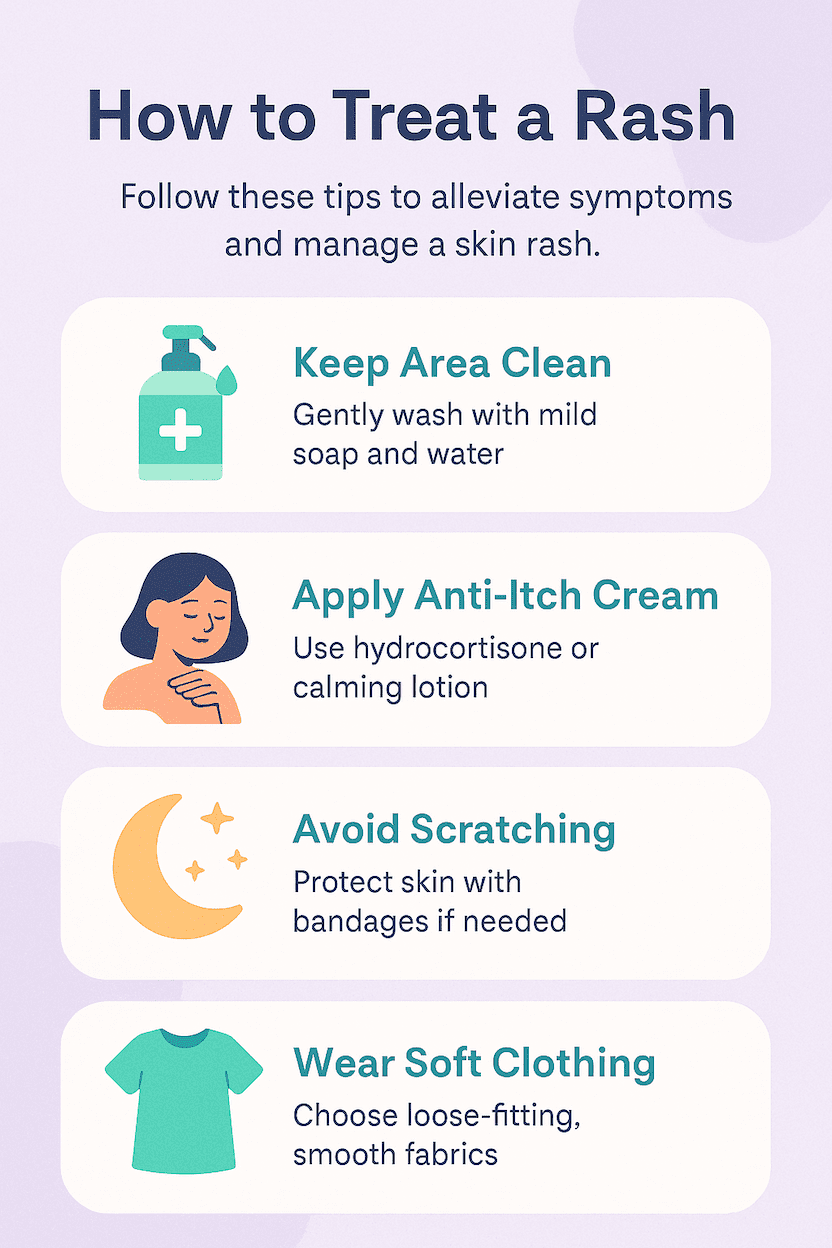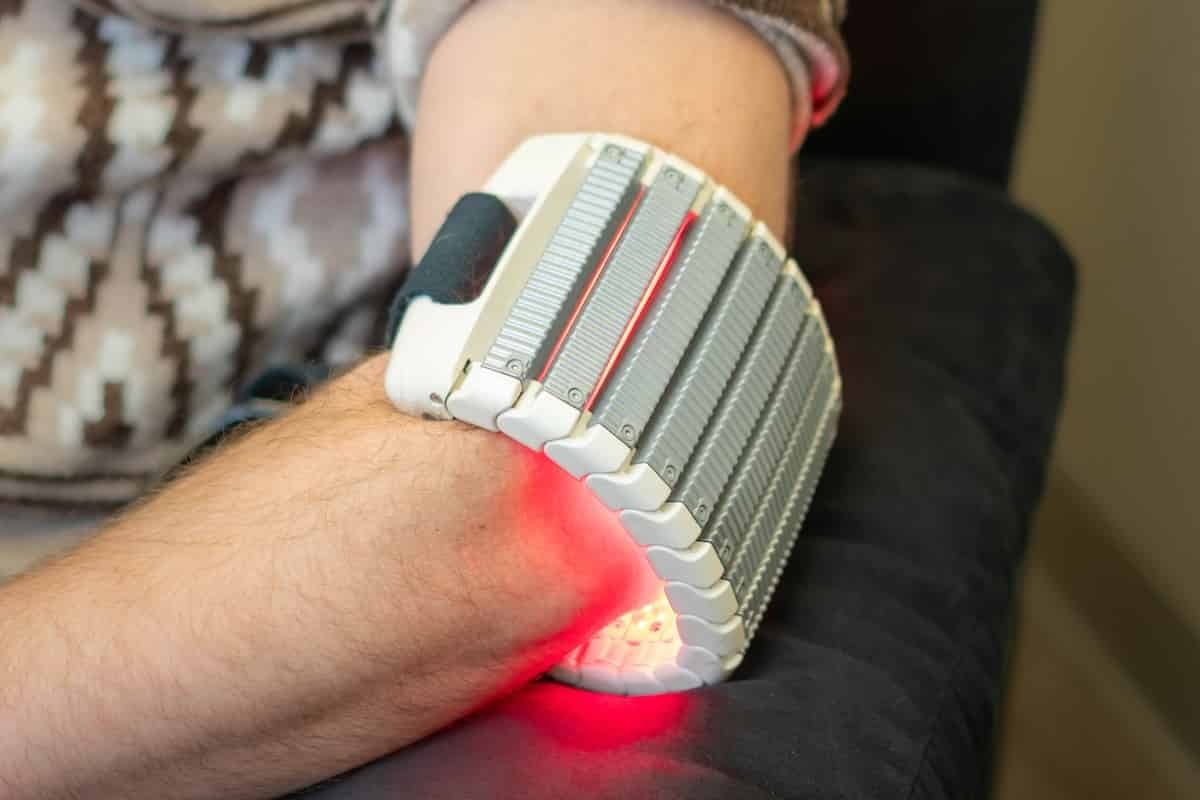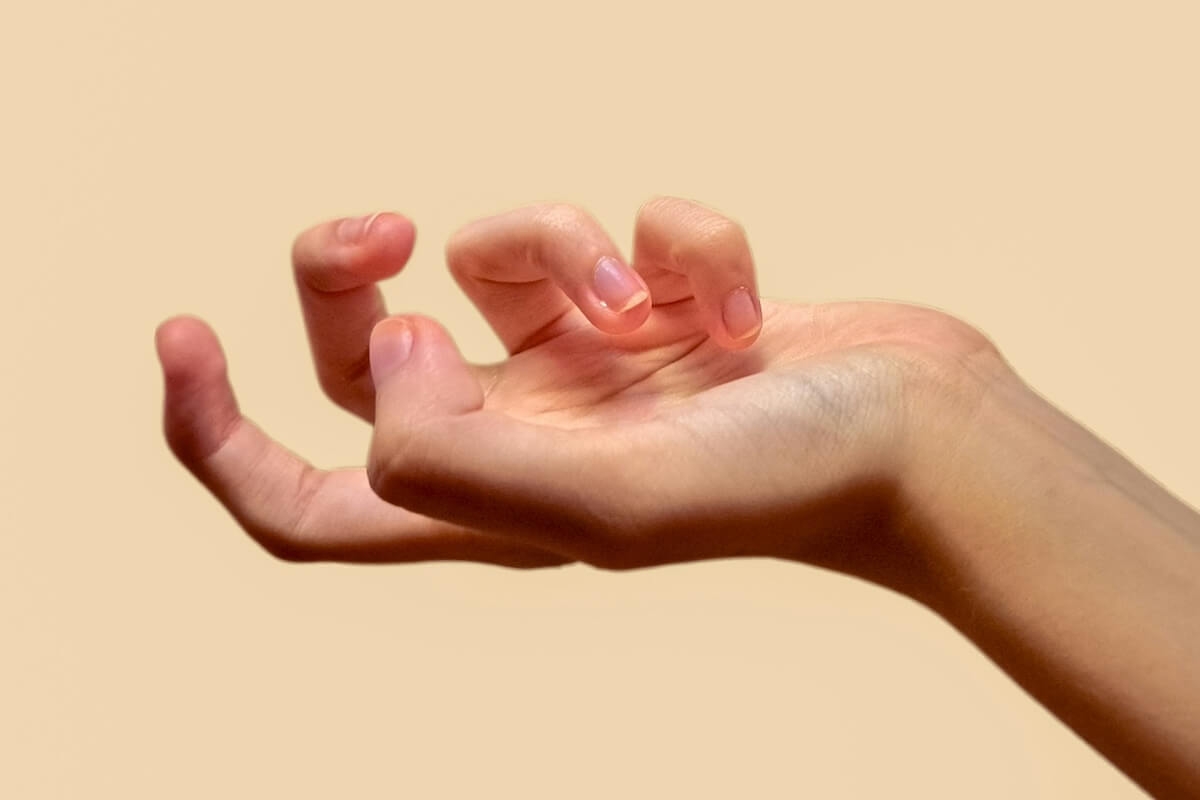Last update: November 4, 2025
5 minute read
Rash Causes and Treatment: How to Identify and Soothe Skin Irritation
Itchy, red, or bumpy skin? Learn what's behind common rashes, how to calm them naturally, and when to seek medical care.

By Derick Rodriguez, Associate Editor
Edited by Dr. Dimitar Marinov, MD, RDN, PhD

Ever notice your skin flaring up out of nowhere? One day your arm feels fine, and the next it's covered in tiny red spots.
Rashes can show up for countless reasons—stress, allergies, heat, infections, or even a new supplement. The good news: most rashes are manageable once you know what's causing them. Here's how to figure it out and calm your skin without panic.
Key takeaways
- Rashes have many triggers, from allergies and infections to stress, medications, and skincare reactions
- Identifying the cause is the first step to treating irritation effectively
- Natural remedies like oatmeal, aloe vera, and gentle moisturizers may help soothe skin
What actually causes a rash?
A rash happens when your skin reacts to something like an irritant, an infection, or internal inflammation.
Here are some of the most common culprits:
- Allergic reactions: Things like nickel jewelry and laundry detergents can cause contact dermatitis, leading to itchy red patches.
- Heat or sweat: Known as heat rash, this shows up when sweat gets trapped under the skin, often in hot, humid weather.
- Infections: Viral infections (like chickenpox or shingles), bacterial infections (like impetigo), and fungal infections (like ringworm or athlete's foot) all cause distinctive rashes that require proper diagnosis.
- Skin conditions: Eczema, psoriasis, and rosacea can flare up due to stress, diet, or environmental triggers.
- Medications or supplements: These reactions may stem from the active compounds themselves, from added ingredients like fillers or binders, or from immune sensitivity. Some supplements may also contain unregulated substances.
- Stress: While stress doesn't directly cause rashes in healthy skin, it can significantly aggravate existing conditions like eczema and psoriasis by triggering inflammation and delaying healing.
- Autoimmune conditions: Lupus, dermatomyositis, and other autoimmune disorders can manifest as skin rashes.

How can you tell what kind of rash you have?
The pattern, texture, and timing offer clues, but keep in mind that many rashes look similar and proper diagnosis often requires medical evaluation. Here's a quick reference:
Rash Appearance | Possible Cause | Common Area |
|---|---|---|
Tiny, itchy bumps | Heat rash | Neck, chest, back |
Red, dry patches | Eczema | Hands, elbows, behind knees |
Scaly plaques | Psoriasis | Scalp, knees, elbows |
Hives or welts | Allergic reaction | Anywhere |
Circular red rings | Ringworm (fungal) | Torso, groin, feet |
Fluid-filled blisters | Viral infection | Variable |
Honey-crusted sores | Impetigo (bacterial) | Face, around mouth/nose |
VitaRx Tip
Take a clear photo of your rash early—it helps a doctor compare changes over time and provides a record if symptoms evolve.
What helps soothe irritation naturally?
When your skin feels like it's on fire, relief can't come fast enough. These home-based remedies can make a real difference for mild, non-infectious rashes:
- Cool compresses: Helps reduce swelling and itching. Use clean, damp clothes for 10-15 minutes at a time.
- Oatmeal baths: Colloidal oatmeal (finely ground oats) contains beta-glucans that calm inflamed skin and restore moisture. This is clinically recognized for conditions like eczema.
- Aloe vera gel: Anti-inflammatory and cooling—keep in mind that raw leaf latex (aloin) can irritate; use decolorized/inner-fillet gels. Patch test first if you've never used it before.
- Gentle moisturizers: Look for fragrance-free, hypoallergenic products. Avoid heavy oils like coconut oil if your rash is oozing, infected, or if you're acne-prone, as coconut oil can clog pores.
- Avoid irritants: Skip harsh soaps, alcohol-based toners, fragranced products, and hot water while healing.
- Note on probiotics: While emerging research suggests connections between gut health and skin conditions, evidence that probiotic supplements or yogurt directly treat rashes is still limited. They may support overall health but aren't a proven rash treatment.
VitaRx Tip
Introduce new skincare products one at a time, just like supplements, to identify what works for your skin.
When should you see a doctor?
Most mild rashes fade with home care, but don't tough it out if:
- The rash spreads rapidly or forms blisters
- You develop a fever, swollen glands, or joint pain
- It's painful, oozing pus, or has honey-colored crusting
- You've started a new medication recently
- The rash appears after a tick bite
- You suspect a bacterial, viral, or fungal infection
- Home remedies haven't helped after 5-7 days
- You're unsure what's causing it
Medical help ensures you get the right diagnosis, some infections (like shingles, staph, or ringworm) need specific treatment, and some rashes signal serious conditions that require immediate care.
About over-the-counter treatments
- Hydrocortisone cream: Can provide short-term relief for mild itching and inflammation, but use it sparingly. Don't apply to broken skin, and avoid using it on your face without medical guidance, as prolonged use can thin the skin. It's not appropriate for all rash types—particularly infections.
- Antihistamines: Can help with allergic reactions and hives but won't treat underlying infections or chronic skin conditions.
— Dr. Dimitar Marinov, MD, RDN, PhDRashes are one of the most common reasons for dermatology visits, yet their causes vary widely—from simple irritation and allergies to infections or autoimmune conditions. The key is identifying the trigger before applying treatments.
Frequently asked questions (FAQ)
Here are some of the most frequently asked questions about rashes.
Final thoughts
Your skin is your body's front line; it reflects what's going on inside. Paying attention to rashes isn't just about comfort—it's about understanding what your body is communicating.
While many rashes respond well to gentle home care, remember that self-diagnosis has its limits. When you know what's irritating your skin, you can choose remedies and routines that truly fit your body.
VitaRx can help you personalize vitamins and nutrients that support your overall health and skin wellness as part of a balanced approach to self-care.
Sources and references
Editor

Derick Rodriguez
Derick Rodriguez focuses on editing health and wellness-related content. With over half a decade of experience in the digital realm, Derick has developed a unique skill set that bridges the gap between complex health concepts and accessible, user-friendly communication. His approach is deeply rooted in leveraging personal experiences and insights to illuminate the nuances of health and wellness topics, making them more approachable and empowering readers with knowledge and confidence.
Fact checker

Dr. Dimitar Marinov
Dr. Marinov has years of experience in scientific research and preventive and clinical medicine. His publications in peer-reviewed journals are on nutritional status, physical activity, and musculoskeletal disorders among adolescents.
At VitaRx, we're not just passionate about our work — we take immense pride in it. Our dedicated team of writers diligently follows strict editorial standards, ensuring that every piece of content we publish is accurate, current, and highly valuable. We don't just strive for quality; we aim for excellence.
Related posts
While you're at it, here are some other relevant articles you might be interested in.

Get your personalized vitamin recommendations in less than
5 minutes.
Get your personalized vitamin recommendations in less than
5 minutes.






